Oral Presentations - fun and full-scoring. Bet you’ve never heard those words in the same sentence before! As much as the Oral is a SAC that is often feared by many English students, I managed to come out of my presentation not completely terrified - I was actually able to somehow enjoy myself a little up there, and I might have even had a smile on my face when it was all done. And, what’s even better is that I managed to score full marks!
In this blog post, I’m going to be guiding you through how I approached the Oral Presentation in Year 12 to achieve full marks. I’ll be breaking down my Oral Presentation script as well as giving some pointers about giving the Oral Presentation on the day.
Scroll down to the bottom to read my full Oral Presentation script!
The Topic I Chose and How I Chose It
You’ve probably heard a million times before to choose an issue that you’re passionate about. This can often leave you thinking, I don’t know what I’m passionate about! or I’m not passionate about anything in the media right now! I was one of those students in the beginning, but this is how I chose an issue that I ended up loving.
Taking Inspiration From My Other Year 12 Subjects
The subject I enjoyed the most in Year 12 was Legal Studies, and my love for this subject guided me in choosing an issue that I genuinely wanted to speak about. I was lucky to have a Legal Studies teacher who was a big nerd in everything law-related, and he often liked to update us about recent and ongoing legal cases that he found interesting. One case that he told us about that I became very interested in was the Ben Roberts-Smith defamation case against Nine Entertainment where some journalists called out Ben Roberts-Smith (a war veteran) for committing war crimes. Roberts-Smith sued these journalists, alleging that this wasn’t true.
I knew I wanted to speak about this case, but I also knew that I had to argue an opinion, and not just provide an overview of the case. So, I began my research into the views of the stakeholders in the case. Something that was very useful to me in my research was news podcasts! In particular, I came across a podcast episode from a podcast called Please Explain (as of 26/02/2024 it seems to have been rebranded and is now called The Morning Edition) by The Age and The Sydney Morning Herald, where the actual journalists that were getting sued in the case talked about their experiences. After listening to this podcast episode on the way home from school, I found myself really sympathising with the journalists and that’s how I knew that I wanted to speak about this defamation case from the journalists’ perspective.
After some thinking, the contention that I arrived at was this:
More should be done to protect public interest journalism.
So my advice for choosing an Oral Topic that you love is to take inspiration from other subjects you’re studying and enjoying, and to pick up on and research anything that your teachers tell you about that piques your interest!
Breaking Down My Script
The Introduction
A Hook Start
Let me take you back in time. Six years ago, in 2017, many of us in this classroom were in Year 6, probably sitting in a primary school classroom, learning what an isosceles triangle is. And obviously, we had all been paying attention because now everyone’s thinking, “Oh yeah, I remember what an isosceles triangle is!” and we’re all imagining a tall triangle that looks like this.
Grabbing the audience’s attention from the very start of your speech is key! To do this, I tried to open up my speech in an interesting way by encouraging the audience to do something - to reflect on what their lives looked like six years ago. Hook starts such as the one I used (which establish a common ground with the audience) were commonly used among my classmates - they quickly grab the audience’s attention and are relatively easy to implement!
In my Statement of Intention*, I wrote that ‘I initially engage[d] my audience with a hook start, encouraging them to cast their minds back to 2017, and through the imagery of a primary school classroom, I aim[ed] to establish relatability and common ground with the audience, positioning them to be more agreeable to my arguments later on.’
*Statement of Intention - a written statement accompanying my Oral Presentation, where I explained the choices I made in my presentation. As of 2024 and with the implementation of the new study design, students are no longer required to submit a Statement of Intention with their Oral Presentations. However, if you’re curious to know more about Statements of Intention, check out this blog.
Providing Context
Now, while our Year 6 teachers were providing us with the life-changing information that is the different types of triangles, something bigger was happening on Collins Street. A huge news sausage was in the making. Picture this: a conversation between two passionate and overworked journalists, working for The Age and The Sydney Morning Herald. One of which had heard whispers from his contact book of Australian military circles that our most decorated living soldier was not the person that everyone thought he was, and that he had in fact been involved in war crimes like the killing of unarmed civilians. A shared desire to put these rumours to the test, with an open mind, wanting to disprove them as much as to prove them.
This marked the start of a 4-year long legal battle in the form of a defamation lawsuit lodged by decorated war vet Ben Roberts Smith against two investigative journalists, Chris Masters and Nick McKenzie. And, after more than 100 days of hearings, this battle recently ended, with the judge ruling overwhelmingly in favour of Masters and McKenzie that what they had reported about Roberts Smith was substantially true, hence the two had not defamed him.
I spent a fair bit of time explaining the issue of protections around public interest journalism in the context of the Ben Roberts-Smith defamation case because it was a bit of a niche issue and I thought that my audience of Year 12 students were unlikely to have known too much about it. To keep this explanation engaging, I tried to explain the case in a descriptive and dramatic way, as if the events were unfolding in front of their eyes, and I tried not to make it sound like I was just listing background information. To do this, I used phrases like ‘A huge news sausage was in the making’, ‘Picture this’, to really set the scene in a dramatic way!
A side note on choosing niche topics for the Oral Presentation: I know it’s often NOT recommended to choose topics that are unlikely to be well-known by your fellow students. This is because it can be disengaging when a student goes on a 5-minute tangent using complicated jargon on a topic that none of the other students know anything about. And… I guess I kind of turned that rule on its head! But this was precisely why I wanted to spend a chunk of my speech explaining the context of my issue - so that my speech would be accessible to my audience, so they wouldn’t be bored, and so we would all be on the same page.
At the end of the day, it’s all about finding a balance between choosing a topic that you love and a topic that is easy for the audience to understand. So, if the topic that you would love to present to the class might be a bit less well-known, my advice would be to make sure to provide adequate context and spend a bit of time explaining key information at the start so that your speech is more accessible to the audience!
Stating Contention
ABC News called it a win for public interest journalism. So why have I brought up this case today to highlight that not enough is being done to protect public interest journalism?
After my explanation section, I smoothly slid into contention territory. Even though I didn’t directly state my contention (i.e. I didn’t say “I believe that more should be done to protect public interest journalism”), through the question, ‘Why have I brought up this case to highlight that not enough is being done to protect public interest journalism?’, I implied that my contention was exactly that - that not enough is being done to protect public interest journalism.
The Supporting Arguments
I actually only had one supporting argument throughout my whole Oral Presentation, and although this might be an unusual way to do it, it worked well for me since I needed to spend quite a bit of time introducing the issue at the start. My one supporting argument was bulky enough that I had a complete speech with just a long introduction, bulky argument and conclusion.
Work out what might work best for you in your presentation. If your issue needs a bit of breaking down like mine did, it might be easier to stick to a very simple structure.
Outlining the Supporting Argument and Providing Evidence
Legal battles in general are a huge issue for journalism because they can be used as a threat to journalists. This defamation lawsuit was only the tip of the legal iceberg for Masters and McKenzie. They also faced challenges to source protection and Roberts-Smith’s numerous attempts to silence the two and other witnesses by sending them legal letters telling them to shut up, to suppress the truth about his actions from coming to light.
I then went on to explain my supporting argument - that legal battles such as defamation cases put public interest journalism at risk (which is why, going back to my overall contention, more should be done to protect public interest journalism). As you can see, I constantly linked back to the Roberts-Smith defamation case because that’s what I wanted to speak about, but I did not have to do this and you absolutely don’t have to - a general explanation would have gotten the job done just as well.
You might be wondering why I didn’t signpost at the start of my supporting argument - in other words, why I didn’t include a sentence like “My first supporting argument is that legal battles such as defamation cases put public interest journalism at risk”. Some teachers love signposting and encourage students to do so. If your teacher seems to prefer clear signposting, go ahead and do that!
TIP: Keep in mind that for anything internally marked, it is important that you keep your teacher/school’s preferences and requirements in mind.
My teacher wasn’t as insistent on signposting, and I personally didn’t like how clear signposting made my speech sound a bit robotic, so to keep the flow of the speech I decided to fluff it out and start my argument the way that I did. You’ll also notice a lack of signposting throughout my speech in general for the same reasons.
The biggest issue about the Ben Roberts Smith defamation case for journalists and news corporations has been costs. Their win has come with a hefty price tag estimated to be around $25 million, and even though the majority of this is to be borne by the loser of the trial, The Age and The Sydney Morning Herald newspapers will still end up losing millions of dollars, just for defending themselves and their journalists in court.
I backed up my supporting argument with some evidence. To quote my Statement of Intention, ‘I went on to use numerical statistics like “4 year[s]” and “100 days of hearings” to emphasise that much of Masters and McKenzie’s time and energy was taken by BRS’s claim, aiming to evoke sympathy for them and positioning readers to agree that more protections are needed to prevent journalists from being involved in these time-consuming legal battles. I also established costs as another major issue using the statistic of “$25 million” to emphasise that not only are these legal battles time-consuming, but also expensive, and through connotations of immensity when describing this as a “hefty price tag”’.’
Explaining the Argument and How It Is Relevant to the Audience
But why exactly is this our issue? It’s not like we’re the ones having to pay millions of dollars.
But it becomes our issue when this financial burden creates a chilling effect on public interest journalism. Fear of bankruptcy or crippling financial strain forces journalists to retreat, self censor or settle for silence. This financial issue for news organisations becomes our issue as the quality of our public interest journalism deteriorates and we are deprived of vital information.
Throughout my speech, I made an effort to constantly tie it back to the audience and explain why exactly this issue was important and relevant to them. This was important for me to do because the issue I chose was relatively niche so I felt like I had to prove to them that this issue was worth presenting. Even if the issue you’re presenting isn’t exactly niche, it’s important to link back to the audience every now and then and to remind them why it’s important to them. In my case, I explained that defamation cases like the Roberts-Smith case against journalists and news corporations were a threat to high school students having access to information that they should be aware of!
Something else that I attempted to do here was to include some persuasive devices! To quote my Statement of Intention, ‘having established costs as a major issue, I segued into the effect that these costs can have on journalists, listing these effects as causing journalists to “retreat, self-censor or settle for silence”, and through listing and sibilance in the latter half of this phrase, I aimed to make these effects memorable to listeners, emphasising the consequences of the costs of legal battles on journalists and public interest journalism.”’
Evidence
Masters and McKenzie talked about the pressure that was put on them to leave the rumours about Ben Roberts Smith be. Chris explained that his colleagues tried to convince him not to fight with Ben Roberts Smith by telling him that it was like shooting Bambi. Well, I guess in that case, he would have been shooting Bambi for shooting unarmed civilians, which sounds pretty fair to me. Nick explained that convincing their bosses to publish the story was an exhaustive process, and even after successfully having their story on Roberts Smith published, Chris said there was a propaganda war waiting for them, with their former colleagues being hired by other news corporations to criticise them and disassemble their work, with their story being put on the cover of a rival newspaper, as an attack on Chris, accusing him of smearing the memories of dead soldiers, and it was designed to intimidate and hurt him and his biding relationships with people in the military who consider him a deep friend. These attempts of BRS to silence the two are not just unfair - as students, we want to grow up in a world where people are held accountable regardless of their connections or wealth.
After explaining my argument, I backed it up with evidence by going back to the defamation case and giving practical, real-life examples of how this case may have worked to hinder the quality of public interest journalism. I took much of the information in this section from the podcast that I talked about earlier (where Masters and McKenzie talked about their firsthand experiences) - for example, the so-called “propaganda war” that Masters faced after having the story published, rival news outlets who were on the side of Roberts-Smith publishing articles attacking Masters - and explained that this was designed to intimidate the two investigative journalists and deter them from exposing controversial stories against prominent figures. I not only told but also showed my audience that legal battles were a very real threat to journalism. I referred to this section of my speech as ‘personal anecdotes’ in my Statement of Intention and I wrote that I hoped to make my speech more convincing by illustrating the consequences of legal battles that Masters and Mckenzie experienced firsthand.
I tried my best to not make this section sound too much like a “he said, she said” situation by slipping in some of my own commentary. My tutor at the time (yes, I also had an LSG English tutor!) gave me the idea of mirroring ‘shooting Bambi’ with ‘shooting unarmed civilians’, and it was so brutal but I liked it so much that I decided to implement it as part of my commentary. In my Statement of Intention, I wrote that this comparison ‘aims to portray Masters and McKenzie as merely holding him accountable for his actions rather than bullying him, encouraging audiences to view journalists as necessary whistleblowers that require protections.’
My final sentence in this section worked to link all of this back to the audience and remind them, again, why all of this was relevant to them!
The Conclusion
It’s obvious that in the end, it didn’t really matter that, this time, the courts sided with the journalists and news corporations in this legal battle. Because the reality is that the fact that this legal battle existed in the first place has been enough of a threat to public interest journalism, with cover up attempts and pressures to retreat, and may be a sign of many other stories being covered up. If two journalists, working for big news companies, felt the chilling effect of the legal battles that they came across, how much worse is it for smaller news organisations or independent journalists, who don’t have the deep pockets that The Age, Masters and McKenzie had in withstanding these challenges? This is only the tip of the iceberg of other stories that need to be broken and known by the public. We can’t continue to allow the law to be weaponised against journalists and against democracy. Thus, the recent conclusion of the Ben Roberts-Smith defamation case is a sign that more should be done to protect public interest journalism.
In my concluding paragraph, I did three things:
- I wrapped up
- I aimed to evoke a sense of urgency on the issue (the bolded part)
- I restated my contention at the very end to seal the deal
I didn’t exactly include a call to action in the part where I evoked a sense of urgency, but you totally could if that would work for your speech!
It’s optional to restate your contention as your final sentence, and I opted to do this. I wanted to emphasise the point of my speech again so that my conclusion didn’t sound like it was straying away from the actual contention. I’d say do it if it flows well with the rest of your conclusion because when it’s done right, it really is like ending your speech with a bang!
I’ve Finished Writing a Killer Oral Script. What Now?
When you’ve perfected your speech script, it’s practice time! The way you present the speech is arguably as important, if not even more important than the script itself - presenting your speech in an engaging way can really make your script shine while presenting it in a dull way can make even the best script sound unappealing.
Practice saying your speech out loud as early as possible and work towards having at least 85-95% of your speech committed to memory (especially if you’re paranoid and get anxious about public speaking like me). By the time I presented my Oral, I had memorised about 95% of my speech and the fact that I knew it off by heart gave me confidence and helped me feel less paranoid that I would mess up. This being said, I would definitely recommend having cue cards with dot points of your main ideas or little prompts with you in the presentation (which I also did), just in case you suddenly blank out!
I spent a week memorising my speech, reciting it out loud over and over again in my bedroom. In doing this, I pretty intuitively found the spots where I wanted to include pauses, change up my intonation or emphasise certain words or phrases - I committed these things to my muscle memory. If public speaking doesn’t come naturally to you, it might be a good idea to highlight and annotate your script and physically write in the parts where you want to include pauses or emphasise words. Practice with that script in front of you until you’ve memorised those things.
I also generally focused on my projection making sure to speak loudly, and I paid attention to my speed and diction. I tend to speed up and start rapping my speech when I’m nervous, so I made a conscious effort to speak slower and steadier in my practice runs, trying to engrain the perfect speed in my muscle memory (to varying levels of success haha). I also tried to make sure I was pronouncing everything clearly and that I wasn’t mumbling.
Before I started my presentation, I took a moment to take a deep breath, shake out my nerves and fix my posture. Good posture is the first step to feeling confident or faking confidence (which we all are when we’re up there)!
What I Wish I Had Done Before I Did My Oral Presentation
If I could go back and give my Year 12 self advice on the Oral, it would be this:
Practice saying my speech in front of someone.
I was pretty shy about my speech - you might relate - so I was very reluctant to practice my speech in front of my peers and even my friends. Unfortunately, this meant that I never practised it in front of another person at all, not even once. This is something that I really regret because I didn’t get to practice keeping a good balance between holding eye contact and looking at my cue cards. This ended up being a criticism from my teacher when she assessed my presentation! My teacher also criticised the fact that I didn’t hold an equal amount of eye contact throughout the whole classroom - she wrote that the right side of the classroom must have felt left out because I barely looked in their direction, haha! So, if you can, I really recommend getting out of your comfort zone and practising presenting your Oral in front of your friends or family members… and practice holding eye contact!
If you’ve made it to the end of this blog post, I’m assuming you’ll be having your Oral Presentation soon. Good luck, and try to enjoy presenting your speech if you can, because it’s the first and last time you will ever have the opportunity to present it!
For more help with your Oral, see our Ultimate Guide to VCE Oral Presentations.
My Full Oral Presentation Script: More Should Be Done To Protect Public Interest Journalism
Let me take you back in time. Six years ago, in 2017, many of us in this classroom were in Year 6, probably sitting in a primary school classroom, learning what an isosceles triangle is. And obviously, we had all been paying attention because now everyone’s thinking, “Oh yeah, I remember what an isosceles triangle is!” and we’re all imagining a tall triangle that looks like this.
Now, while our Year 6 teachers were providing us with the life-changing information that is the different types of triangles, something bigger was happening on Collins Street. A huge news sausage was in the making. Picture this: a conversation between two passionate and overworked journalists, working for The Age and The Sydney Morning Herald. One of which had heard whispers from his contact book of Australian military circles that our most decorated living soldier was not the person that everyone thought he was, and that he had in fact been involved in war crimes like the killing of unarmed civilians. A shared desire to put these rumours to the test, with an open mind, wanting to disprove them as much as to prove them.
This marked the start of a 4-year long legal battle in the form of a defamation lawsuit lodged by decorated war vet Ben Roberts Smith against two investigative journalists, Chris Masters and Nick McKenzie. And, after more than 100 days of hearings, this battle recently ended, with the judge ruling overwhelmingly in favour of Masters and McKenzie that what they had reported about Roberts Smith was substantially true, hence the two had not defamed him.
ABC News called it a win for public interest journalism. So why have I brought up this case today to highlight that not enough is being done to protect public interest journalism?
Legal battles in general are a huge issue for journalism because they can be used as a threat to journalists. This defamation lawsuit was only the tip of the legal iceberg for Masters and McKenzie. They also faced challenges to source protection and Roberts-Smith’s numerous attempts to silence the two and other witnesses by sending them legal letters telling them to shut up, to suppress the truth about his actions from coming to light.
The biggest issue about the Ben Roberts Smith defamation case for journalists and news corporations has been costs. Their win has come with a hefty price tag estimated to be around $25 million, and even though the majority of this is to be borne by the loser of the trial, The Age and The Sydney Morning Herald newspapers will still end up losing millions of dollars, just for defending themselves and their journalists in court.
But why exactly is this our issue? It’s not like we’re the ones having to pay millions of dollars.
But it becomes our issue when this financial burden creates a chilling effect on public interest journalism. Fear of bankruptcy or crippling financial strain forces journalists to retreat, self censor or settle for silence. This financial issue for news organisations becomes our issue as the quality of our public interest journalism deteriorates and we are deprived of vital information.
Masters and McKenzie talked about the pressure that was put on them to leave the rumours about Ben Roberts Smith be. Chris explained that his colleagues tried to convince him not to fight with Ben Roberts Smith by telling him that it was like shooting Bambi. Well, I guess in that case, he would have been shooting Bambi for shooting unarmed civilians, which sounds pretty fair to me. Nick explained that convincing their bosses to publish the story was an exhaustive process, and even after successfully having their story on Roberts Smith published, Chris said there was a propaganda war waiting for them, with their former colleagues being hired by other news corporations to criticise them and disassemble their work, with their story being put on the cover of a rival newspaper, as an attack on Chris, accusing him of smearing the memories of dead soldiers, and it was designed to intimidate and hurt him and his biding relationships with people in the military who consider him a deep friend. These attempts of BRS to silence the two are not just unfair - as students, we want to grow up in a world where people are held accountable regardless of their connections or wealth.
It’s obvious that in the end, it didn’t really matter that, this time, the courts sided with the journalists and news corporations in this legal battle. Because the reality is that the fact that this legal battle existed in the first place has been enough of a threat to public interest journalism, with cover up attempts and pressures to retreat, and may be a sign of many other stories being covered up. If two journalists, working for big news companies, felt the chilling effect of the legal battles that they came across, how much worse is it for smaller news organisations or independent journalists, who don’t have the deep pockets that The Age, Masters and McKenzie had in withstanding these challenges? This is only the tip of the iceberg of other stories that need to be broken and known by the public. We can’t continue to allow the law to be weaponised against journalists and against democracy. Thus, the recent conclusion of the Ben Roberts-Smith defamation case is a sign that more should be done to protect public interest journalism.
For more help with your Oral, see our Ultimate Guide to VCE Oral Presentations.







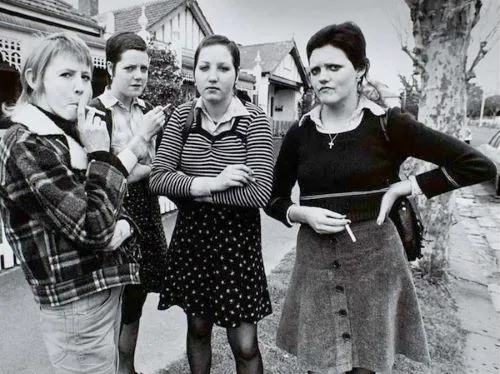
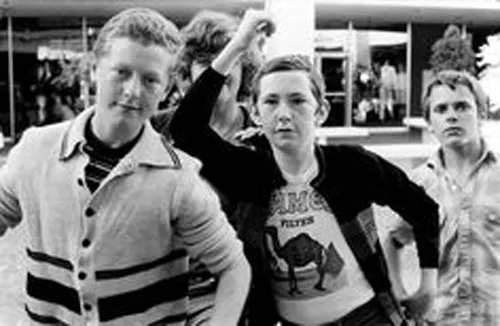
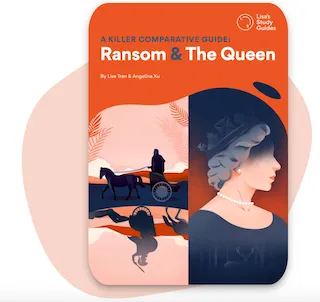

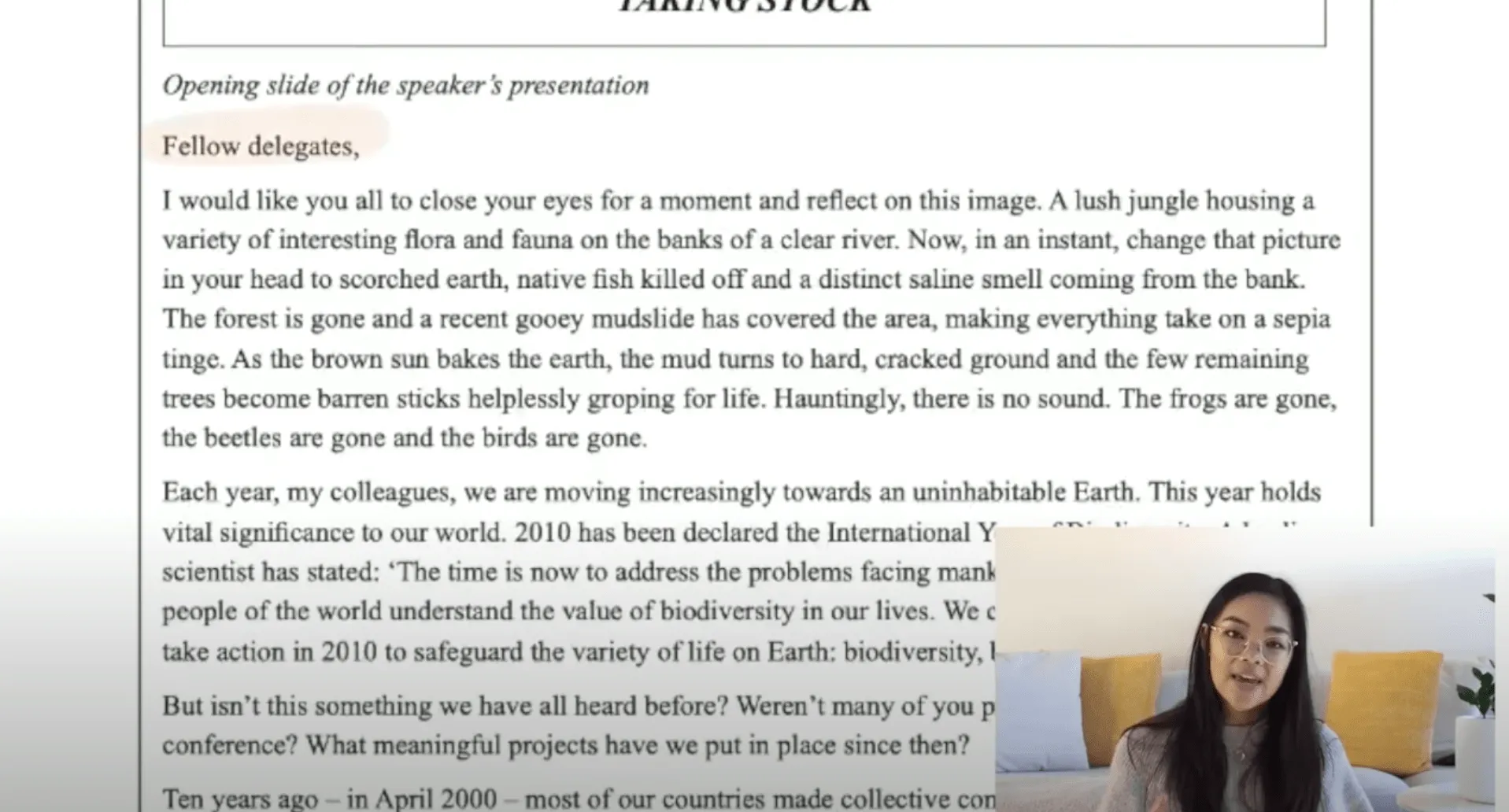
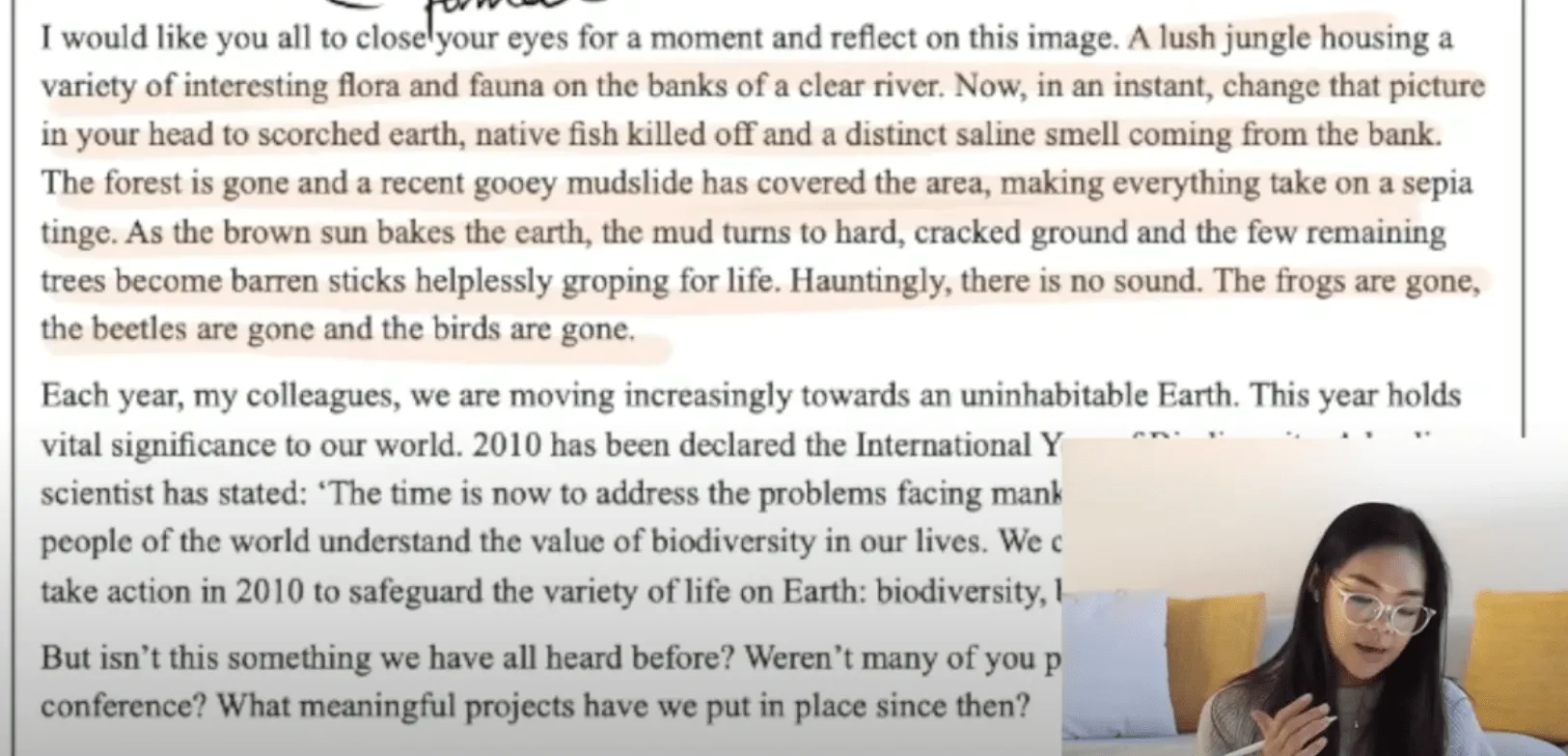
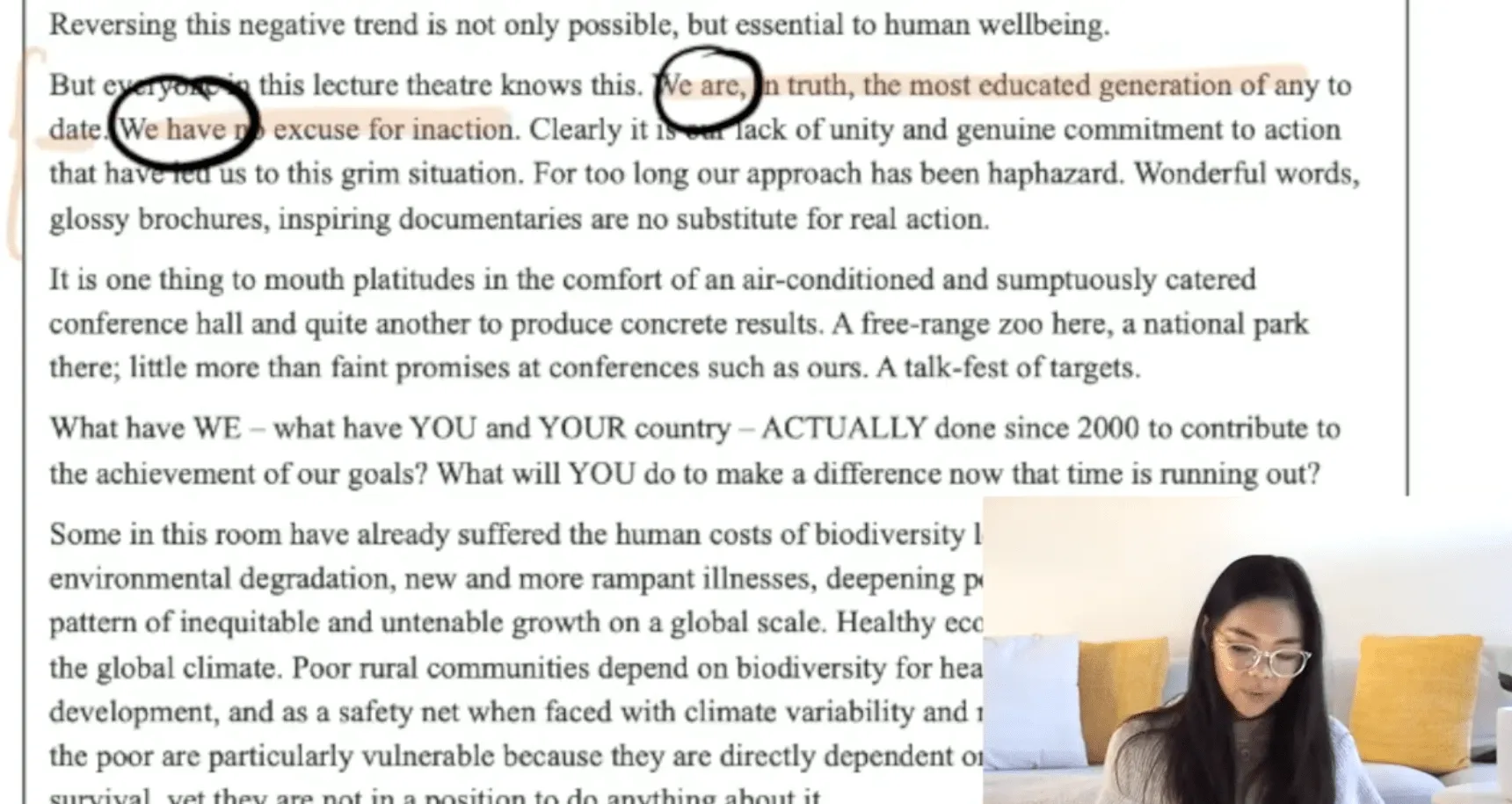

.jpg)